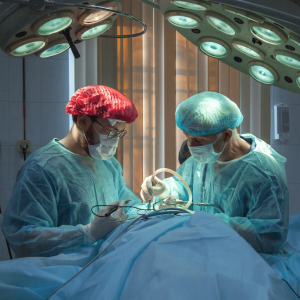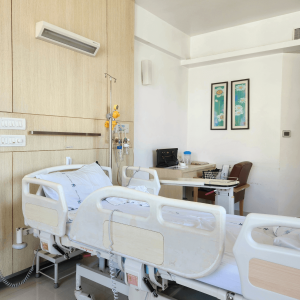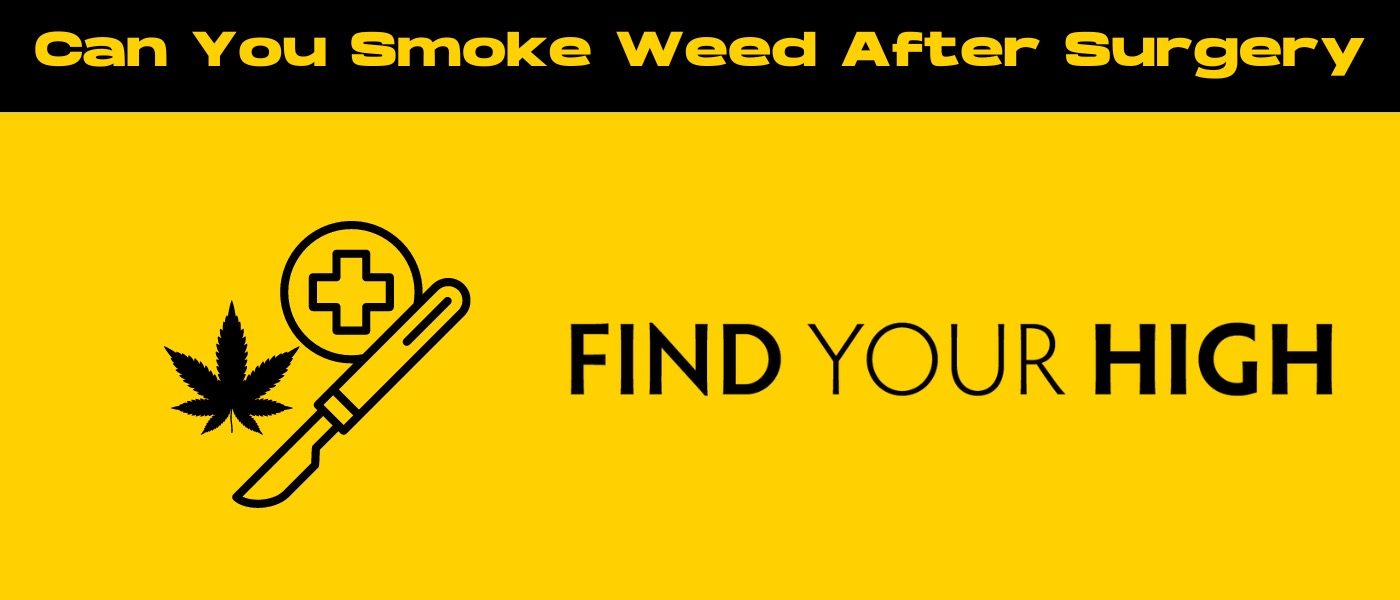Deep in the trenches of surgery recovery? Been there. And if you’re reading this, you’ve likely found yourself wondering if your post-op prescriptions could use a little green company. In other words, can you smoke weed after surgery?
As marijuana use steps out of the shadows and into the mainstream, more and more people are using it both medicinally and recreationally. But this raises an important question: is it safe to light up or munch on an edible after you’ve just come out of surgery?
In this blog, we’ll explore the potential benefits and risks of choosing to smoke marijuana post-surgery, how it might interact with those pain meds the doctor prescribed, and what science has to say about mixing stitches with stashes. Let’s dive in!
Understanding Post-Surgery Recovery
After the anesthesia wears off and you’re no longer speaking in rhymes (yes, it happens!), your body begins its valiant journey of recuperation. Here are some common symptoms you may experience post-surgery:
- Inflammation: The body’s initial response to surgery, bringing in the troops to fight off any potential bacterial invaders.
- Pain: Often a loyal companion after surgery, pain indicates that healing is underway, though it doesn’t feel like a party.
- Nausea: The not-so-fun side effect of anesthesia that can leave you feeling like you’re on a wicked fairground ride minus the joy.
- Anxiety: The big “what ifs” make an appearance, as your mind races through worst-case scenarios quicker than a caffeinated squirrel.
Amidst all this healing chaos, it’s crucial to follow the medical advice dished out by your healthcare team. Sure, it might feel l
ike being grounded, but adhering to their guidance is the ticket to a smoother recovery. Remember, they know a thing or two about stitching people back together—a skill you probably won’t find in any YouTube tutorial!

Cannabis and Its Effects
Cannabis is undoubtedly consumed for the highs it induces; however, it owes its impact primarily to two active compounds: THC (tetrahydrocannabinol) and CBD (cannabidiol).
THC is the psychoactive compound that delivers the characteristic “high,” often leading to altered consciousness, euphoria, and a tendency to deeply ponder life’s mysteries. On the flip side, CBD plays a more grounded role, providing therapeutic benefits without the psychoactive ride. Both compounds together influence the endocannabinoid system in the body, which influences various physiological processes ranging from mood and memory to pain sensation and immune function.
Potential benefits of cannabis in a post-surgery scenario are noteworthy. THC and CBD can team up to relieve pain and reduce inflammation, making it feel like your soldier-like immune response just received reinforcements. Additionally, cannabis is known for its anti-nausea properties, something anesthesia aftermath warriors would appreciate.
However, before declaring cannabis your trusty post-op ally, be mindful of the potential side effects. THC might leave you in a haze, impacting focus and decision-making—handy at a concert, not-so-much when you’re scrawling straight lines in hospital intake forms. Smoking cannabis could also introduce respiratory concerns, so weigh your options if you’re considering a puff.
Rule of thumb: When in doubt, consult your healthcare provider!

Cannabis Use: Medical vs. Recreational Post-Surgery
When it comes to puff-puff-passing post-surgery, it’s essential to differentiate between the medical and recreational use of cannabis. Medical cannabis is often prescribed with intention and precision, targeting specific ailments such as chronic pain or severe anxiety. It’s like having a tailored suit: made just for you and your needs. On the other hand, recreational use generally aims to catch the chill vibes and wash away stress, kind of like slipping into your favorite pair of jeans.
In terms of patients undergoing surgery, medical cannabis might be recommended in situations where traditional medications haven’t cut it, or when side effects outweigh the benefits—like when your anti-nausea meds make you feel like you’ve boarded a rollercoaster without a harness. However, if your stitches involve any respiratory damage or if you’re dealing with a history of substance misuse, even medicinal cannabis could be a no-go.
For those eyeing cannabis as a pain relief contender, consider its ability to manage pain, reduce inflammation, and control anxiety. Nonetheless, it’s essential to tread carefully, keeping a vigilant eye on how it interacts with prescribed medications:
- Pain Medications: Combining cannabis with opioids or prescription medications can boost pain relief but may also increase sedation, so you’ll want to avoid anything important like writing a thesis or operating heavy machinery.
- Anxiolytics: Since both can have a sedative effect, pairing them may enhance their calming properties but could also leave you sleepier than the neighborhood cat on a sunny patio.
- Anti-Inflammatory Drugs: While cannabis and NSAIDs (pain medicine) might tag-team inflammation effectively, monitoring for any gastrointestinal or bleeding issues is wise.
So, while cannabis could be a helpful tool in the post-surgery kit, navigating its use requires thoughtfulness and, of course, a little guidance from the medical maestro conducting your recovery symphony.
Risks of Smoking Weed After Surgery
If you’re a surgical patient, lighting up a joint post-surgery might sound like a tempting way to ease the discomfort. However, it comes with a bundle of potential risks that could complicate your recovery, even for regular marijuana users.
First off, let’s talk about your lungs: combining smoking with anesthesia can spell trouble for your respiratory system. Smoke inhalation, coupled with the effects of anesthesia, can irritate and damage the delicate tissues of the lungs, increasing the risk of infections or breathing difficulties— not exactly the souvenirs you want from your operating room experience.
On the pharmacological front, cannabis can interfere with the prescribed medications crucial for your healing journey. Imagine cannabis pulling a party-crasher move, messing with the efficacy of painkillers or antibiotics you rely on to mend those freshly sewn-up tissues.
Beyond the bodily concerns, there’s also a web of legal and regulatory rules to navigate. Depending on where you are, using cannabis post-op could land you in a gray zone, particularly if it’s considered recreational. Hospitals often have policies prohibiting its use, which means your laid-back recovery approach could unroll into an unexpected saga of legal woe.
Balancing the potential benefits with these risks demands clear-headed guidance from your healthcare provider, ensuring your path to recovery is smooth rather than stormy.

Alternatives and Safer Consumption Methods
Moving away from the traditional smoking route, there are a number of safer cannabis consumption methods that could offer relief without jeopardizing your post-op progress:
- Edibles: Munchies aren’t just for snack lovers! Edibles provide a smokeless alternative, often considered gentler on the lungs. Whether it’s THC-infused brownies or CBD gummies, this method allows for a longer-lasting effect but requires patience as it might take a while to kick in—so be careful not to overindulge thinking nothing’s happening.
- Tinctures: A few drops of cannabis tincture under the tongue could be just what the doctor ordered. This method provides a quick onset similar to smoking but without exposing your lungs to harmful smoke. Plus, they’re easy to dose accurately, making it ideal for those who want to control their intake with precision.
- Vaping: Considered a slightly safer option than smoking, vaping heats the cannabis to release its active compounds without combustion. While it reduces exposure to harmful substances, it’s not entirely risk-free, requiring careful consideration of the device and products used.
However, it’s not all about cannabis. There are non-cannabis alternatives to consider for managing post-operative symptoms:
- Over-the-counter medications like ibuprofen or acetaminophen are tried-and-true for managing pain and inflammation.
- Physical therapy can also play a crucial role, helping to alleviate pain and improve mobility through targeted exercises.
- Mind-body practices, such as meditation and deep breathing exercises, can help manage stress and anxiety, fostering a peaceful recovery environment.
Remember, before incorporating any of these alternatives or safer consumption methods into your recovery plan, it’s crucial to have a candid chat with your healthcare provider. Their expertise will guide you in making choices that align with your specific medical needs and recovery goals.
Can You Smoke Weed After Surgery? Conclusion
In wrapping up, it’s clear that while cannabis may offer some benefits for pain management and stress relief after surgery, it also carries a bundle of risks that require careful consideration. From potential respiratory issues when smoking to complex interactions with prescribed medications, the path to a smooth recovery can become a twisted trail if navigated hastily.
Understanding the legal ramifications and hospital policies in your area is equally crucial to avoid any post-op drama that could detract from your healing. Ultimately, balancing effective pain management with safeguarding your health and safety demands a thoughtful approach.
We strongly encourage consulting with your healthcare provider to tailor a plan that aligns with your personal health needs, ensuring a comfortable recovery without compromising your wellbeing.

Frequently Asked Questions
1. How soon after surgery can I smoke?
Unfortunately, smoking soon after surgery isn’t recommended. Your lungs need time to heal from both the surgery itself and the effects of anesthesia. It’s best to avoid smoking marijuana for at least a couple of weeks or until your doctor gives you the green light. Plus, it’s a great opportunity to explore those healthier consumption methods we talked about!
2. How long after surgery can you take edibles?
Good news for those with a sweet tooth! Edibles can generally be considered sooner than smoking weed post-op, but it’s important to follow your healthcare provider’s advice. Usually, once you are back on a regular diet and can tolerate oral medications, you might be able to start indulging in some THC-infused treats. Just remember to start slow, even if you’re among the regular marijuana smokers—these goodies take time to metabolize and show their true colors!
3. How long after top surgery can you smoke weed?
Top surgery is a major procedure, and your body needs adequate time to recover. Smoking weed during this period can complicate healing, so it’s generally advised to avoid it for at least 4-6 weeks post-op or until your surgeon gives you clearance. Consider opting for non-smoking alternatives that still let you mellow out without hindering your recovery process.
4. Can you smoke after General Anesthetic?
Your lungs have been through a whirlwind after receiving general anesthesia, so it’s wise to take it easy. Smoking can exacerbate any inflammation and increase risks of complications. It’s better to hold off until all traces of anesthesia have exited your system and your doctor indicates that your respiratory system is back to its usual functioning. Plus, this can reduce withdrawal symptoms. Health first, puff second!
5. Can I smoke marijuana before surgery?
Oh, the temptation to light up and chill out before going under the knife! But hold your horses—smoking marijuana before surgery is not advised. The anesthesia team needs your airways to be in tip-top shape, and smoking can irritate them, potentially complicating your anesthesia experience.
Plus, marijuana may interfere with various pre-operative procedures and medications. So, it’s best to pause the puffs at least 24-48 hours prior to your surgery and focus on preparing your body for a smooth and hitch-free operation. Always check in with your medical team for guidance tailored to your surgery and health status.

 Rewards
Rewards




